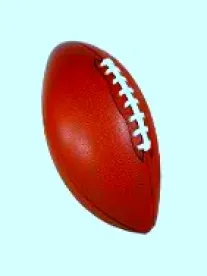The NFL Players Association (NFLPA), won its case against the National Football League (NFL) regarding the four-game suspension of New England Patriots' quarterback Tom Brady. In his September 3, 2015 decision, U.S. District Court Judge Richard M. Berman granted the NFLPA's motion to vacate that suspension.
In his decision, Judge Berman referenced Edward A. Snyder, Dean of the Yale School of Management, who had presented his findings at the June 23rd appeal hearing before NFL Commissioner Roger Goodell. Supporting Dean Snyder in that analysis were Senior Lecturer Michael J. Moore of Northwestern University, and a team led by Vice President Jimmy Royer as well as Managing Principals Pierre Cremieux and Paul Greenberg. Dean Snyder, Dr. Moore, and the Analysis Group team were retained by counsel for the NFLPA, Jeffrey Kessler, David Greenspan, and Ben Sokoly of Winston & Strawn, to assess the statistical evidence presented by Exponent in the NFL-sponsored Wells Report.
At the appeal hearing, Dean Snyder referred to the "impromptu protocols" used at halftime of the AFC Championship Game on January 18, 2015, between the New England Patriots and the Indianapolis Colts, and emphasized that the pressure measurements (PSI) were taken sequentially, first for the relatively cold and wet Patriots' footballs and then for the Colts' footballs. Although this timing difference was not accounted for in Exponent's statistical models, it greatly affected the findings upon which the Wells Report's conclusions were based. PSIs increase the longer footballs remain in a warm and dry locker room, where the PSI measurements were taken, relative to cold and wet game-day field conditions outdoors.
Dean Snyder concluded that after properly accounting for timing, there was no statistical difference in the relative pressure drop of Patriots' and Colts' footballs. Subsequent to the hearing, Dr. Moore stressed that Exponent could have easily incorporated time into their original model with all the halftime data and that failing to do so was a fundamental methodological mistake.
This widely watched court case focused on the arbitration process that culminated in Mr. Brady's suspension following the use of allegedly under-inflated footballs during the AFC Championship Game. In his decision, Judge Berman wrote that, "The Court is fully aware of the deference afforded to arbitral decisions, but, nevertheless, concludes that the Award should be vacated. The Award is premised upon several significant legal deficiencies, including (A) inadequate notice to Brady of both his potential discipline (four-game suspension) and his alleged misconduct; (B) denial of the opportunity for Brady to examine one of two lead investigators, namely NFL Executive Vice President and General Counsel Jeff Pash; and (C) denial of equal access to investigative files, including witness interview notes." In particular, he added that, "Goodell's reliance on notice of broad CBA 'conduct detrimental' policy -- as opposed to specific Player Policies regarding equipment violations - to impose discipline upon Brady is legally misplaced."



 />i
/>i

